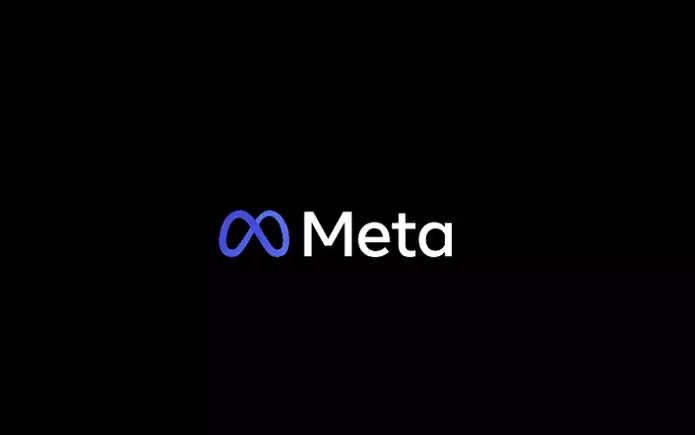Meta, the parent company of social media behemoths Facebook and Instagram, aims to distance itself from political content on its platforms. This ambition, however, is increasingly challenged by the political realities that users continually engage with. Despite Meta’s public relations efforts to reduce political discourse, its platforms remain a lucrative avenue for political influence and misinformation. This conundrum raises critical questions about the company’s approach to the impending political season and the sustainability of its current strategy.
Recent reporting by Forbes has highlighted a troubling trend: Facebook is hosting a plethora of advertisements that spread misinformation regarding upcoming elections. One advertisement juxtaposes an alarming image of Vice President Kamala Harris adorned with devil horns against a backdrop of a burning American flag. Numerous other politically charged images further illustrate this tactic, depicting politicians amidst chaotic scenes or in unsettling contexts. These advertisements might exploit anxiety and uncertainty among voters, signaling a significant issue with how advertising content is monitored and regulated on the platform.
The roots of such political manipulation stretch back to the 2016 election, when foreign operatives exploited Facebook’s vast reach to disseminate disinformation and create division among voters. The lack of accountability attached to these acts led to congressional scrutiny of CEO Mark Zuckerberg and the company’s role in the spread of falsehoods. This ongoing entanglement with political dynamics and the potential for misinformation creates a paradox for Meta: can it genuinely distance itself from politics while benefitting financially from political content?
In response to the backlash regarding political advertisement and misinformation, Meta has made concerted efforts to shift its focus away from political content. By cutting specialized news sections and scaling back partnerships with media publishers, the company hopes to create a less divisive space for users. This pivot aligns with Zuckerberg’s assertion that audiences desire less political content and more entertaining interactions. However, endeavoring to obliterate political conversations while simultaneously facilitating real-time engagement—especially through platforms like Threads—presents a fundamental contradiction.
The sprawling nature of contemporary politics makes it unrealistic for a platform that thrives on user-generated content to effectively filter out political discussions. Despite Meta’s assertions that it’s listening to user feedback about the abundance of political content, the reality is that politics will invariably seep into social discourse, whether the company intends it or not.
Meta’s internal strategy seems to indicate that increased engagement is prioritized, as can be seen through their promotion of nostalgic media content repackaged into engaging Reels. However, this tactic underscores a crucial tension: can Meta maintain this focus on entertaining content while also addressing unhealthy political discourse? Inadvertently, Meta finds itself in a precarious balancing act, trying to appease regulatory authorities and community feedback while engaging users’ interests.
Should the company abandon its political restrictions altogether? This prospect raises concerns about potential backlashes from users and sponsors alike. Similarly, if the strategy continues in its current direction, Meta risks alienating politically-minded users—it’s a no-win situation. Effective engagement requires adaptability and a nuanced understanding of how political content intersects with user interaction.
Another layer to the dilemma lies in Meta’s nebulous definition of what constitutes “political content.” The company has articulated that political content encompasses anything related to government, elections, or social topics, yet this broad definition may lead to inconsistency. Users might find it increasingly challenging to understand what content is allowed or repressed, leading to distrust in the platform’s moderation efforts.
Moreover, as societal perceptions of political content evolve, Meta’s current approach could necessitate recalibration. Particularly in the lead-up to significant political events, the company may experience mounting pressure to redefine what ‘politics’ means in this ever-changing digital landscape.
The road ahead for Meta is fraught with challenges. While the endeavor to limit political content appears to be a strategic decision to mitigate the implications of misinformation, the reality remains stark: politics is an entrenched aspect of societal discourse. Efforts to eliminate political discussion on platforms designed for open expression are likely to be futile. The future might require Meta to evolve its approach, learning to integrate political discussion in a way that acknowledges its significance to users.
As Meta navigates its role within an increasingly polarized global landscape, transparency about its policies and a willingness to refine its definitions of political content will be crucial. The success of its platforms ultimately hinges on understanding that politics, while contentious, will remain an inescapable part of social media discourse.

